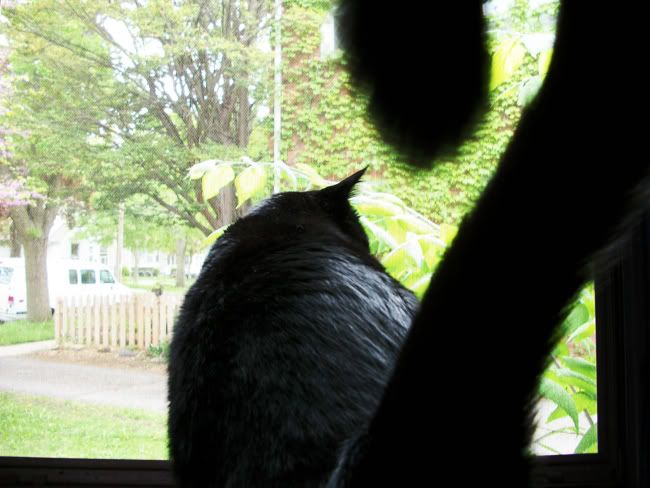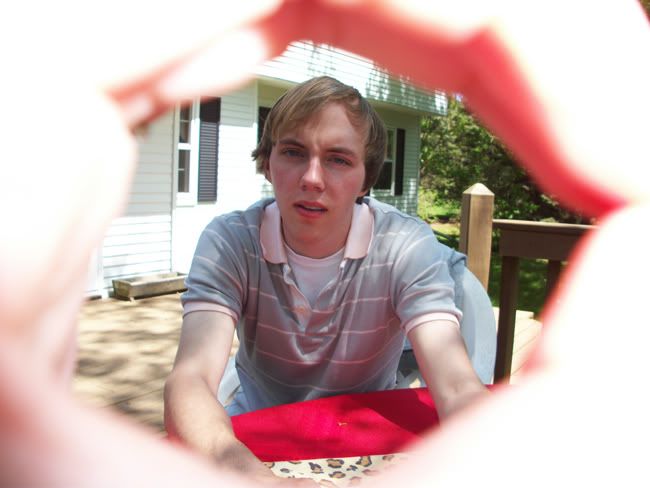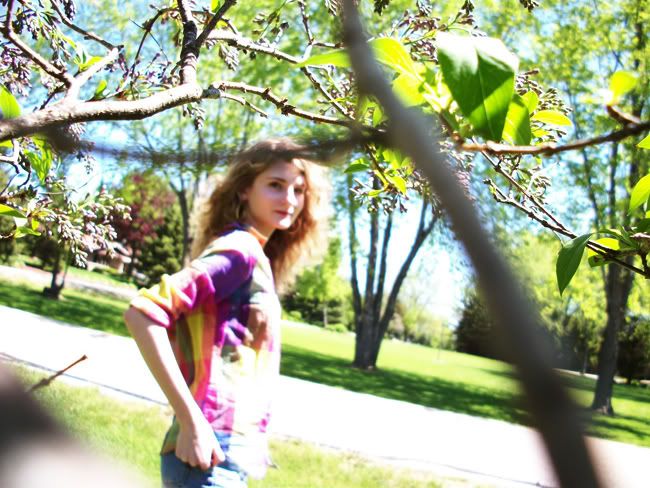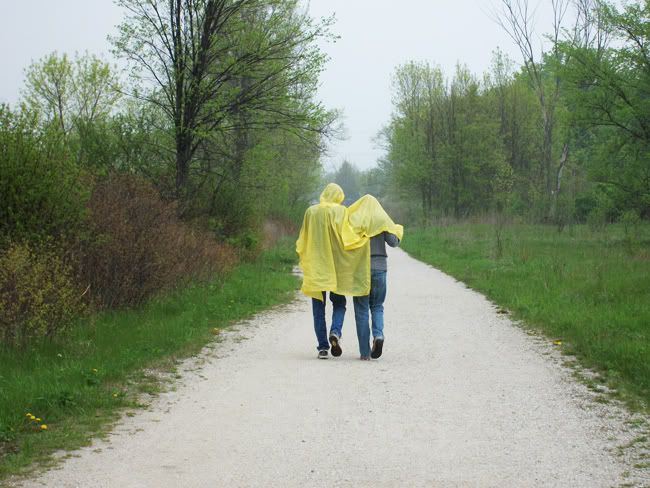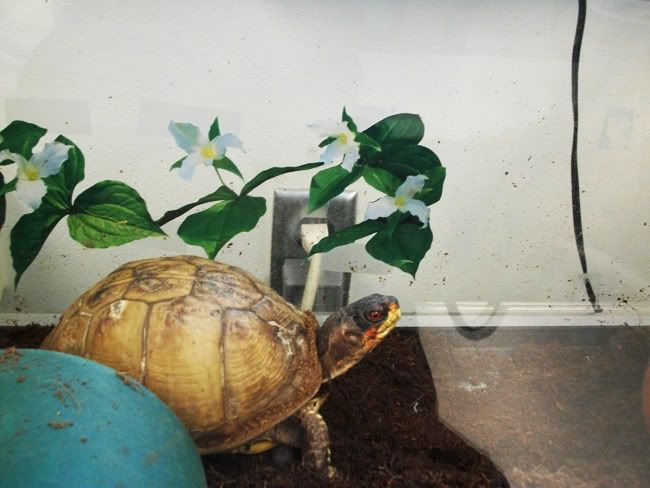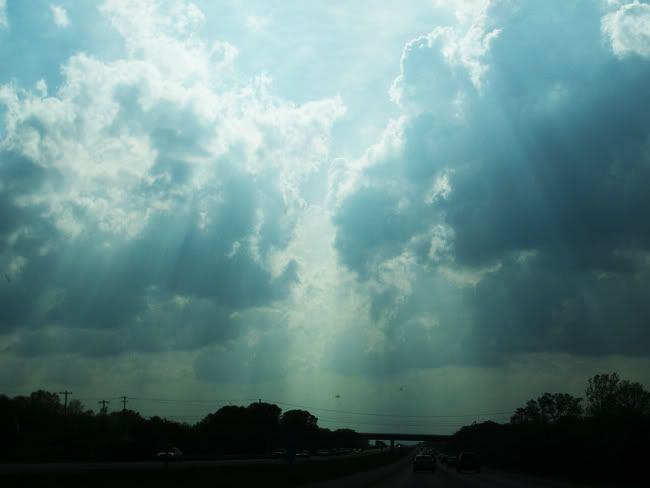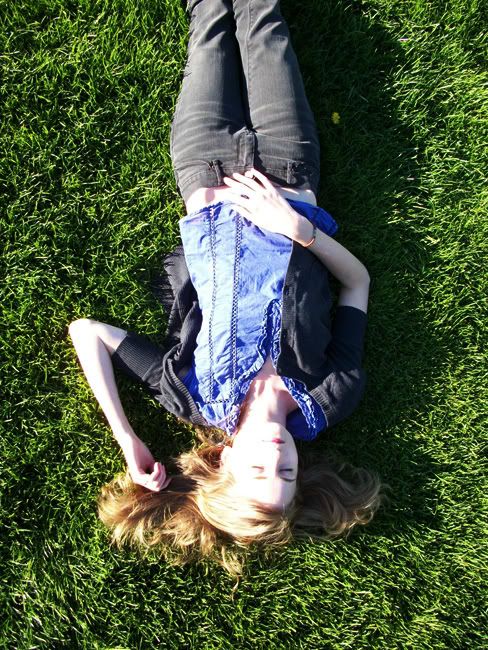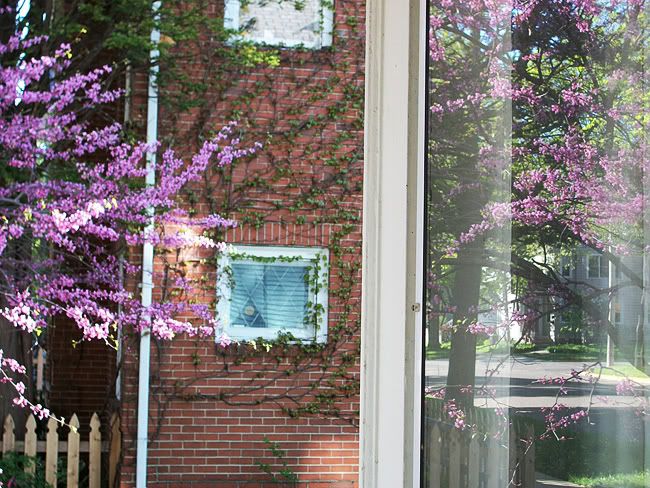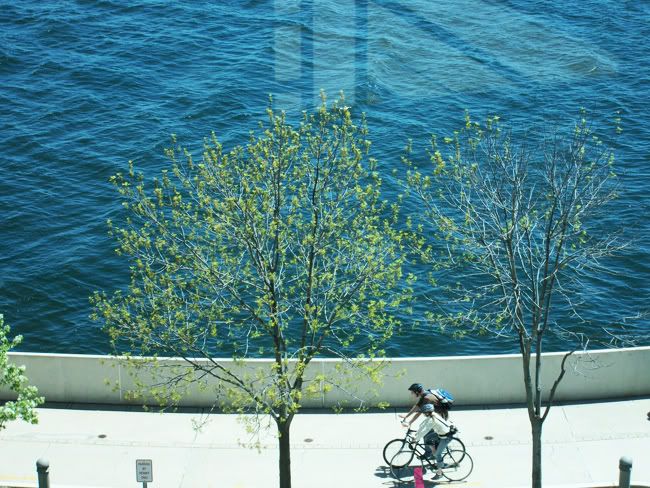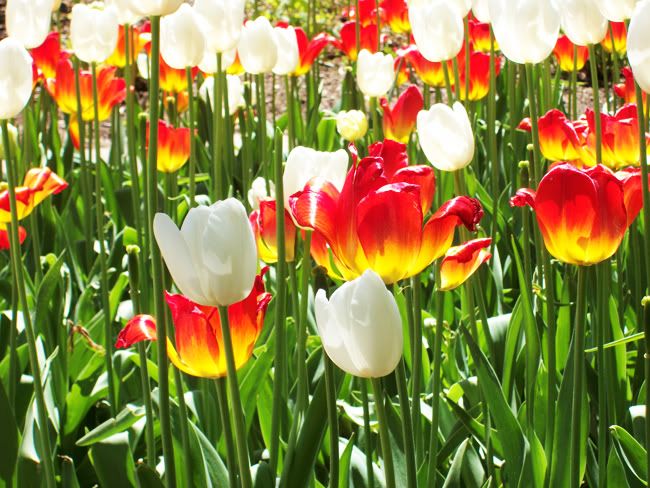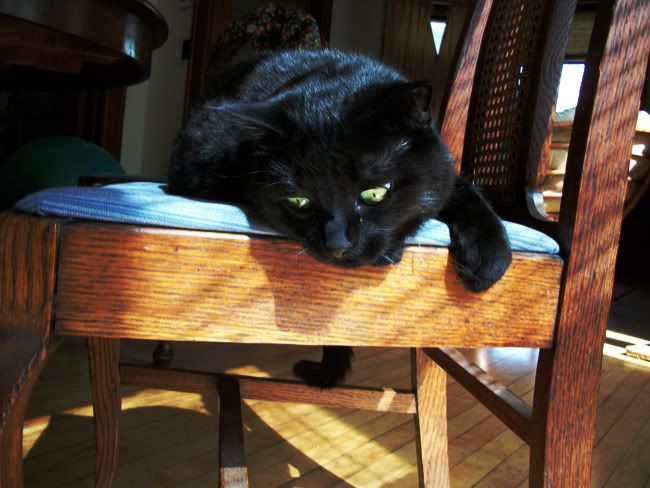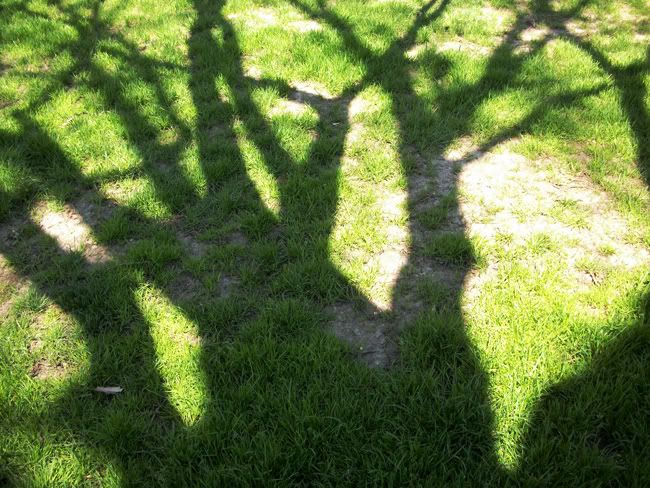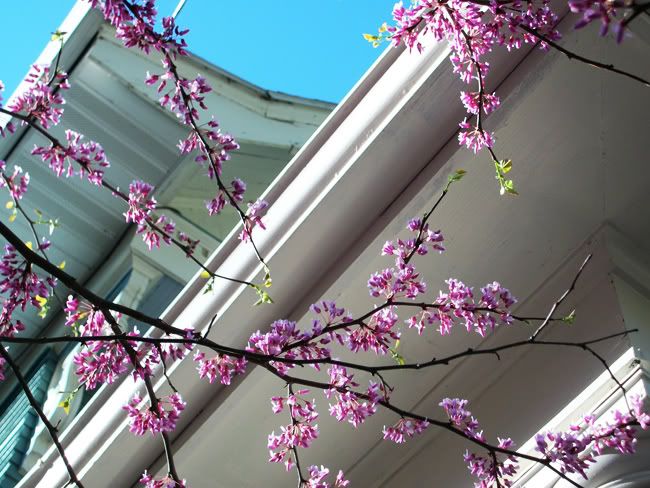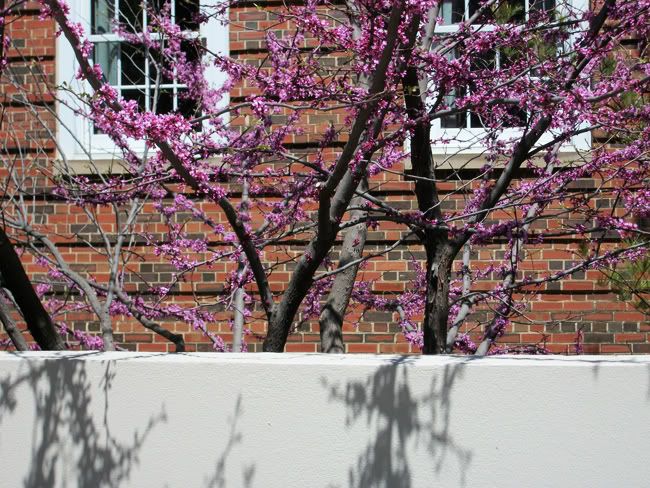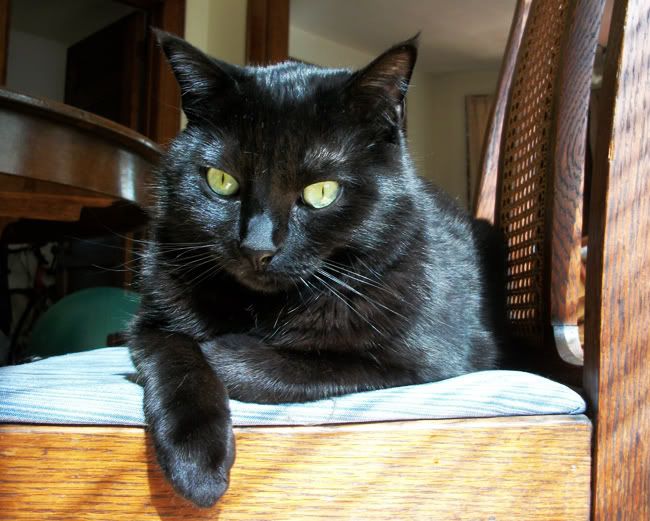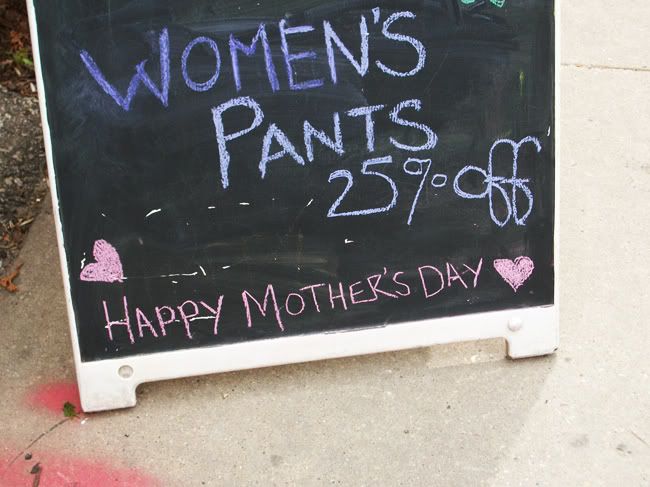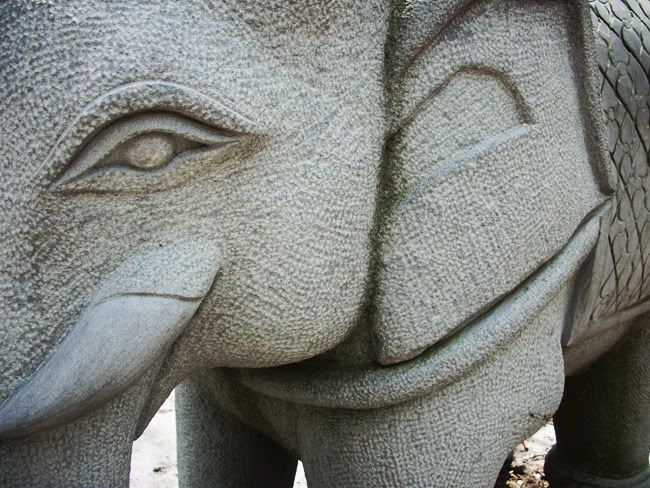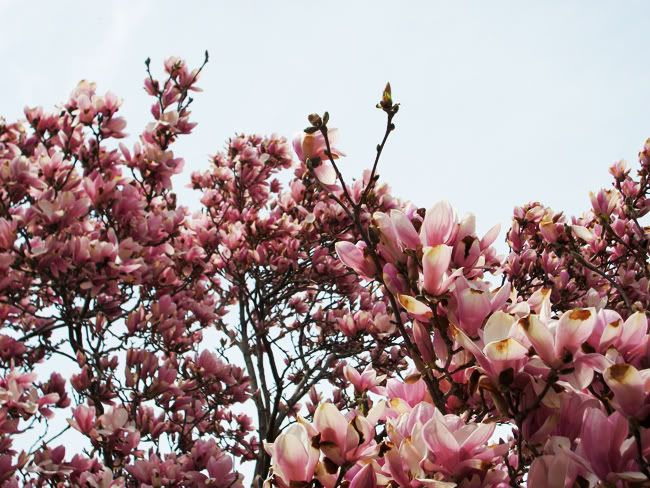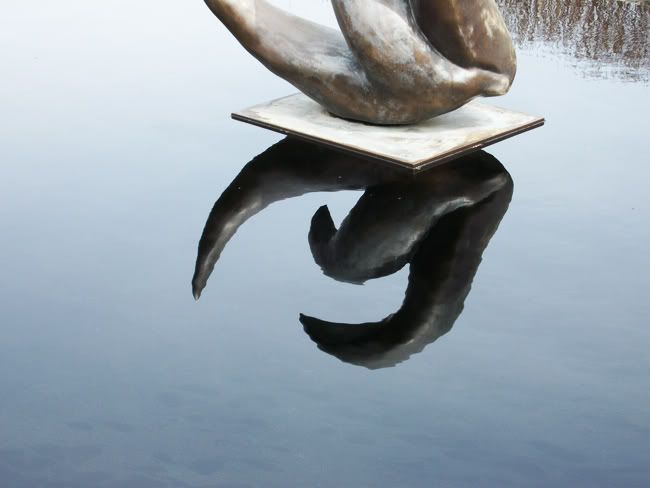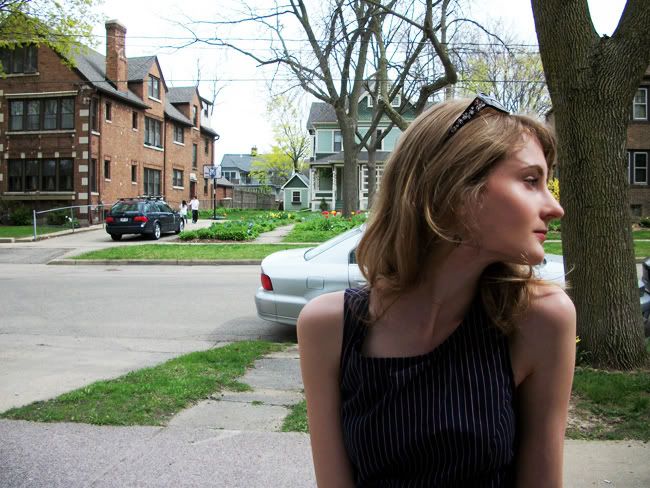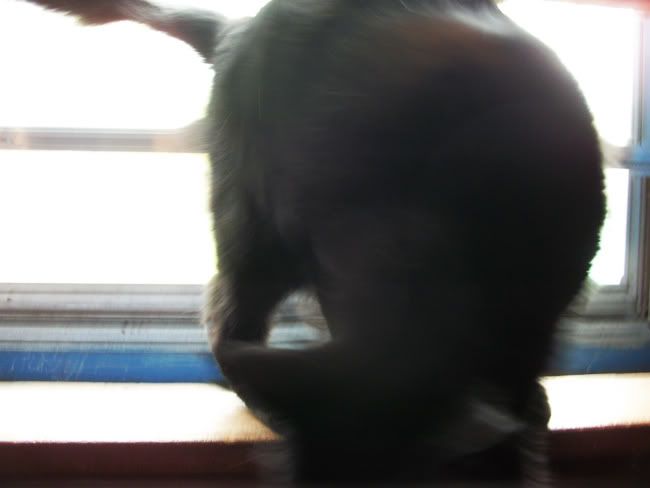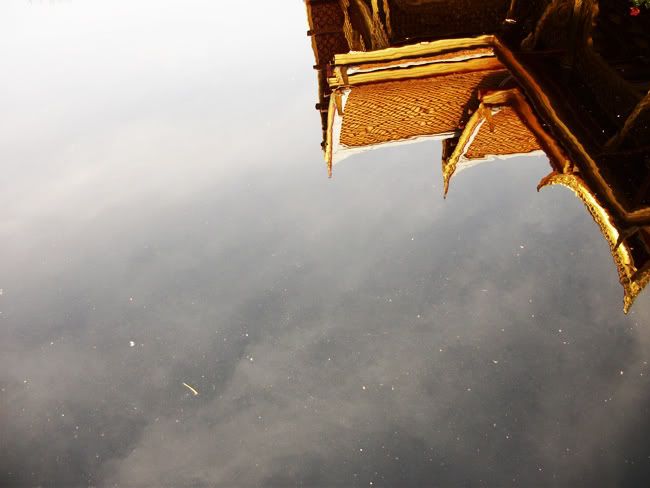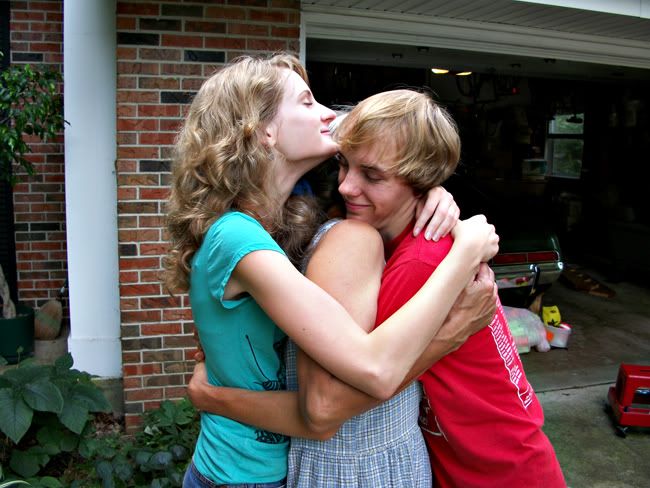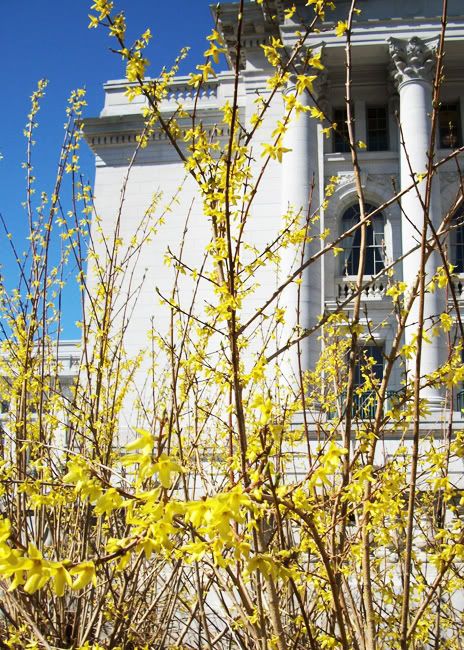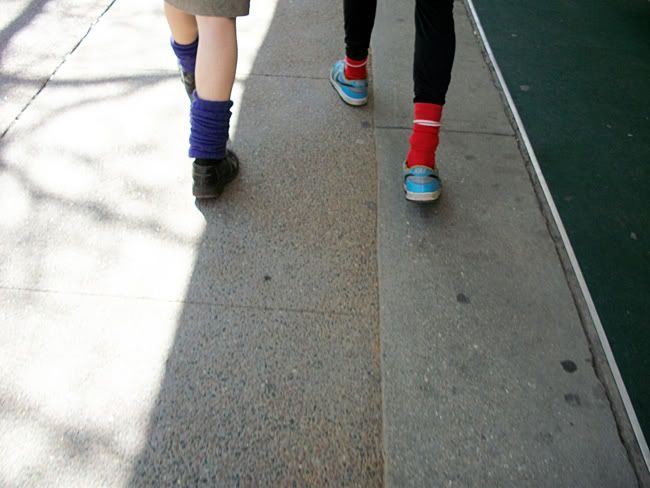Sunday, May 29, 2011
Here is where we run out of continent.
Friday, May 27, 2011
Sunday, May 22, 2011
The world didn't end, and Sunday was lovely!
Wednesday, May 18, 2011
Monday, May 16, 2011
May 16, 2011.
Thursday, May 12, 2011
Monday, May 9, 2011
Bread lines of the spirit.
... Libraries are much more than bookstores. About 30 percent of the people who visit libraries do not borrow books. For a greater number of people than we might care to believe, the library serves as a warm and dry sanctuary, a place they can sit without fear of being bothered. For others, it is a refuge from loneliness, a place full of hustle and bustle, where they can attend a concert, or hear a lecture or read a magazine free of charge.
...
All things public are under attack. The Fort Worth [library] rebranding [to remove the word ‘public’] is an indication of how effective this attack has been. The city explained that it was dropping the word "public" because of its "potentially negative connotation." The Founding Fathers would be disconsolate. John Adams wrote in 1776, "There must be a positive passion for the public good, the public interest… established in the minds of the people, or there can be no republican government, nor any real liberty: and this public passion must be superior to all private passions." Thomas Jefferson agreed, "I profess… that to be false pride which postpones the public good to any private or personal considerations."
All Hail the Public Library!
Sunday, May 8, 2011
Saturday, May 7, 2011
What You Can Do to Make a Better World
Personal Life
1. Challenge the prevailing myth that all problems have private, individualized solutions.
2. Notice how many of life’s pleasures exist outside the marketplace— gardening, fishing, conversing, playing music, playing ball, making love, enjoying nature and more.
3. Take time to enjoy what the commons offers. (As the radical Brazilian educator Paulo Freire once declared, “We are bigger than our schedules.”)
4. Introduce the children in your life to the commons. Let them see you enjoying it, and working with others to sustain it.
5. Keep in mind that security and satisfaction are more easily acquired from friends than money.
6. Become a mentor — officially or informally — to people of all ages around you. (And be prepared to learn as much as you teach.)
7. Think about living cooperatively with housemates.
8. Don’t be afraid to ask for help.
9. Have some fun. The best reason for restoring the commons is that it enriches our lives.
Community Life
10. Offer a smile or greeting to people you pass. The commons begins with connecting — even in brief, spontaneous ways.
11. Walk, bike, or take transit whenever you can. It’s good for the environment, but also for you. You meet very few people behind the wheel of your car.
12. Treat commons spaces as if you own them (which, actually, you do). Keep an eye on the place. Tidy things up. Report problems or repair things yourself. Initiate improvement campaigns.
13. Pull together a potluck. Throw a block party. Form a community choir, slow food club, Friday night poker game, May Day festival, or any other excuse for socializing.
14. Get out of the house and spend some time on the stoop, the front yard, the street — anywhere you can be a part of the river of life that flows past you.
15. Create or designate a “town square” for your neighborhood where folks naturally want to gather — a park, playground, vacant lot, community center, coffee shop or even a street corner.
16. Lobby for more public benches, water fountains, plazas, parks, sidewalks, bike trails, playgrounds, and other crucial commons infrastructure.
17.Conduct an inventory of local commons. Publicize your findings, and offer suggestions for celebrating and improving these community assets.
18. Organize your neighbors to prevent crime and to defuse the fear of crime, which often dampens a community’s spirits even more than crime itself.
19. Remember streets belong to people, not just automobiles. Drive cautiously and push for traffic calming and other improvements that remind motorists they are not kings of the road.
Money & the Economy
20. Buy from local, independent businesses whenever possible. (For more information see American Independent Business Alliance and the Business Alliance for Local Living Economies: www.livingeconomies.org.)
21. Before buying something at a chain store or online from a distant vendor, see if you can find it or order it from a local merchant. That way, some of your money stays in the community.
22. Investigate how many things you now pay for could be acquired in more cooperative ways — checking out DVDs at the library, quitting the health club and forming a morning jogging club, etc.
23. Form a neighborhood exchange to share everything from lawn mowers to childcare to vehicles.
24. Barter. Trade your skill in baking pies with someone who will fix your computer.
25. Look into creating a Time Dollars system or locally-based currency.
26. Organize a Common Security Club. You are not on your own when it comes to economic woes.
27. Watch where your money goes. How do the stores, companies and financial institutions you use harm or help the commons?
28. Purchase fair trade, organic and locally made goods from small producers as much as you can.
Social Change
29. Join campaigns opposing cutbacks in public assets like transit, schools, libraries, parks, social services, police and fire protection, arts programs and more.
30. Support activists around the globe working for debt relief, environmental protection, human rights, worker rights, sustainable development, and indigenous people.
31. Take every opportunity to talk with elected officials, nonprofit organizations, labor unions, professional societies, and business leaders about the importance of protecting the commons.
32. Protest the private patenting of products created with research paid for by taxpayers. Demand that publicly-funded research data be available to everyone on the Internet.
33. Write letters to the editor about the commons, post on local websites, call into talk radio, tell your friends.
34. Learn from everywhere. What can Copenhagen teach us about bicycles? India about wellness? Africa about community solidarity? Indigenous nations about the commons itself? What bright ideas could be borrowed from a nearby neighborhood or town?
Environment
35. Pick up litter that is not yours.
36. Avoid bottled water whenever you can. Tap water is generally safer. If you still have concerns about the local water supply — get a filter and pressure local officials to clean it up.
37. Become a guerrilla gardener, planting flowers and vegetables on neglected land in your neighborhood.
38. Organize a community garden or local farmer’s market.
39. Roll up your sleeves to restore a creek, wetland, woods, grasslands, or beautify a vacant lot.
40. Remember that everything that goes down your drain, on your lawn, in your garbage, or into your storm sewer eventually winds up in our water or air.
41. Seek new ways to use less energy and create less waste at home and work.
42. Form a study group to explore what can be done to promote sustainability in your community.
43. Purchase goods — from beer to clothing to hardware — produced close to home whenever possible. Shipping, trucking and flying goods long distances stresses the environment.
Information & Culture
44. Patronize and support your public library.
45. Demand that that schoolchildren should not become a captive audience for marketing campaigns.
46.Contribute your knowledge to on-line commons such as wikipedia, open education projects and open access journals. Form your own online community to explore commons issues.
47. Use Creative Commons licenses for your own writing, music, videos and other creative pursuits.
48. Conceive a public art project for your community.
Commons Consciousness
49. Think yourself as a commoner and share your enthusiasm. Raise the subject in conversation, art, professional circles, and organizations with which you are involved.
50. Launch a commons discussion group or bookclub with your neighbors and colleagues, or at your church, synagogue, or temple.
51. Spread some hope around. Explain how commons-based solutions can remedy today’s pressing problems
JAY WALLJASPER. Reprinted from New. Clear. Vision.
Friday, May 6, 2011
I could live in its growing countries forever.
I am itching to read Chris Hedges’ new The World As It Is: Dispatches on the Myth of Human Progress. The waiting list at the library is ten deep. I never used to be a book buyer, but my patience for long waits runs thin. There are too many essential (and immediately essential) reads out there. If I’m convinced that I can’t wait for the substance of a book to hit me, I’ll trek to the Rainbow Bookstore Cooperative and buy it.
Rain threatens tomorrow morning’s farmers market but I’m still looking forward to baking bread, listening to The Civil Wars, running errands on dusty ripped-up Willy Street, and catching up on two weeks of missed Daily Show episodes while I scrub my suddy way through a mountain of dishes. I want a garden of my own, but otherwise I'm content.
What do your weekends look like?
Then realized it's good for my soul not to know.
ARTHUR MILLER.
Funny that the very evening after I read this, I met a Moroccan man and we stood and talked under an astounding sky (menacing clouds with ragged edges backed by a saffron and magenta sunset) and I pointedly didn't ask him what he did. He volunteered this information after awhile, and then laughed and said that it reminded him of being in Morocoo or Europe not being asked upfront what he does and where.
Wednesday, May 4, 2011
On bin Ladin.
I'm not convinced that bin Ladin’s death changes much of anything, really. My immediate response, revealing in its cynicism, was, “Gee, here I always thought we’d kill Osama in late October of a presidential election season.” Bin Ladin's death doesn’t undo any of the messes we’ve made in Afghanistan or Iraq. It won’t spring us from our not-war in Libya or reform our whole misguided Middle East policy or reclaim our distanced allies. We won’t start redefining our national security interests to match our capabilities in the wake of May 1. His death certainly can’t begin to reverse the damage we’ve unleashed on ourselves—the forfeited civil liberties, the resources and attention stolen from schools and other public goods and thrown into drones, bombs, Humvees, and those $400 gallons of gasoline that power us through craggy Afghan mountain ranges. Bin Ladin’s death won’t lift the residue of fear that clings to everything and justifies every kind of theft, deceit and criminal act.
From FireDogLake: Justice is about what society does, not what an alleged criminal has done. Justice is about giving fair treatment to the accused, no matter the enormity of the crime they are accused of, no matter the place in society of the accused, and no matter the place in society of the victims. Justice is about things like the rule of law and an opportunity to confront one’s accusers and challenge evidence. Justice is how society sets itself apart from those who perpetuate injustice. Justice is how society says to those who violate the community’s rules, “You may act this way, but we do not.”







